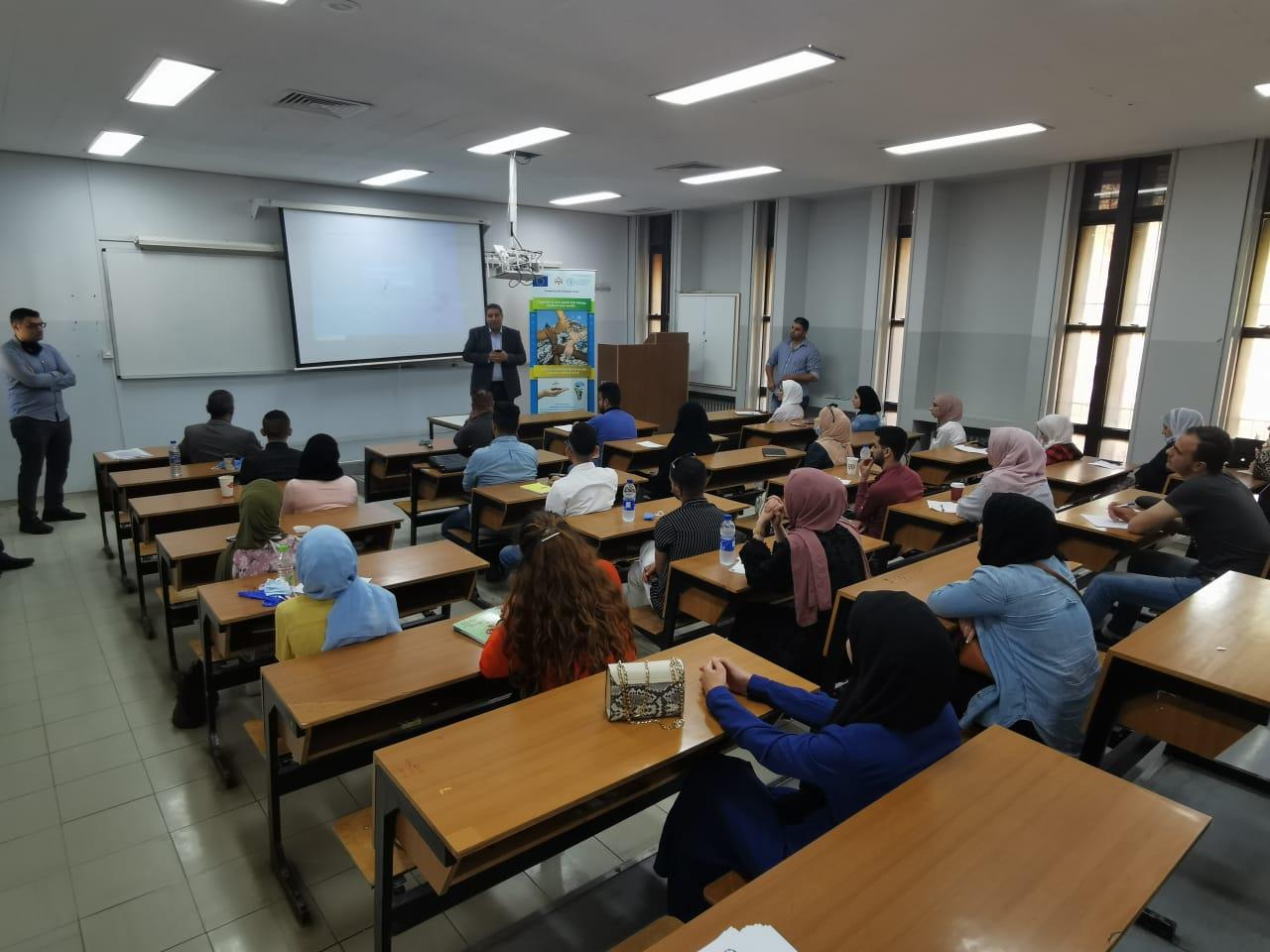Turning Challenges into Green Opportunities

06 July 2020, Jordan - The Food and Agriculture Organization of the United Nations in cooperation with the Royal Scientific Society (RSS)/National Energy Research Center (NERC) completed the first day of the pioneering theoretical training on Biogas Technology “Design, Build, and Operate Biogas Plants”.
Conversion of waste to energy is the solution for untreated waste, which had a negative effect on the climate and environment. Understanding bio-energy technologies will increase the performance of designing, installing and operating different types of bio-energy processes especially the biogas process.
This training falls within the activities of the biogas pilot project, which is one part of the “Improving rural livelihoods and the environment through the integral utilization of residues of treated wastewater and organic solid waste for the production of renewable energy and compost in Mafraq Governorate of Jordan” project funded by the European Union.
The objective of the training is to build the capacity of twenty-five students from the faculty of Agriculture at the Jordan University of Science and Technology (JUST) related to biogas technology, and to gain the needed knowledge and technical skills that ensure the successful implementation of the bio-energy projects.
Talal Al-Fayez, on behalf of FAO Representative a.i in Jordan, said: “FAO estimates that one-third of the food produced for human consumption (about 1.3 billion tons) is lost or wasted each year, this leads to the loss of resources that contributed to its production such as water, seeds, fertilizers, feed, in addition to money and labor.” This leads to an increase in solid waste and its negative impact on the environment.
The Food and Agriculture Organization of the United Nations is working with experts and research centers on a pilot project in Zaatari camp to convert solid organic waste and sludge into organic fertilizer and alternative energy, which reduces the amount of solid waste that goes to the landfill by 50% and saves in the energy bill needed for water treatment.
Dr. Kamel Mahmoud, the Dean of Faculty of Agriculture at JUST pointed out the importance of this training in educating university graduates about the importance of biogas technology as one of the energy production sources.
The training will focus on the renewable energy and biomass in Jordan as well as bio-energy technologies. In addition to biogas Plants and their design and safety operations.
